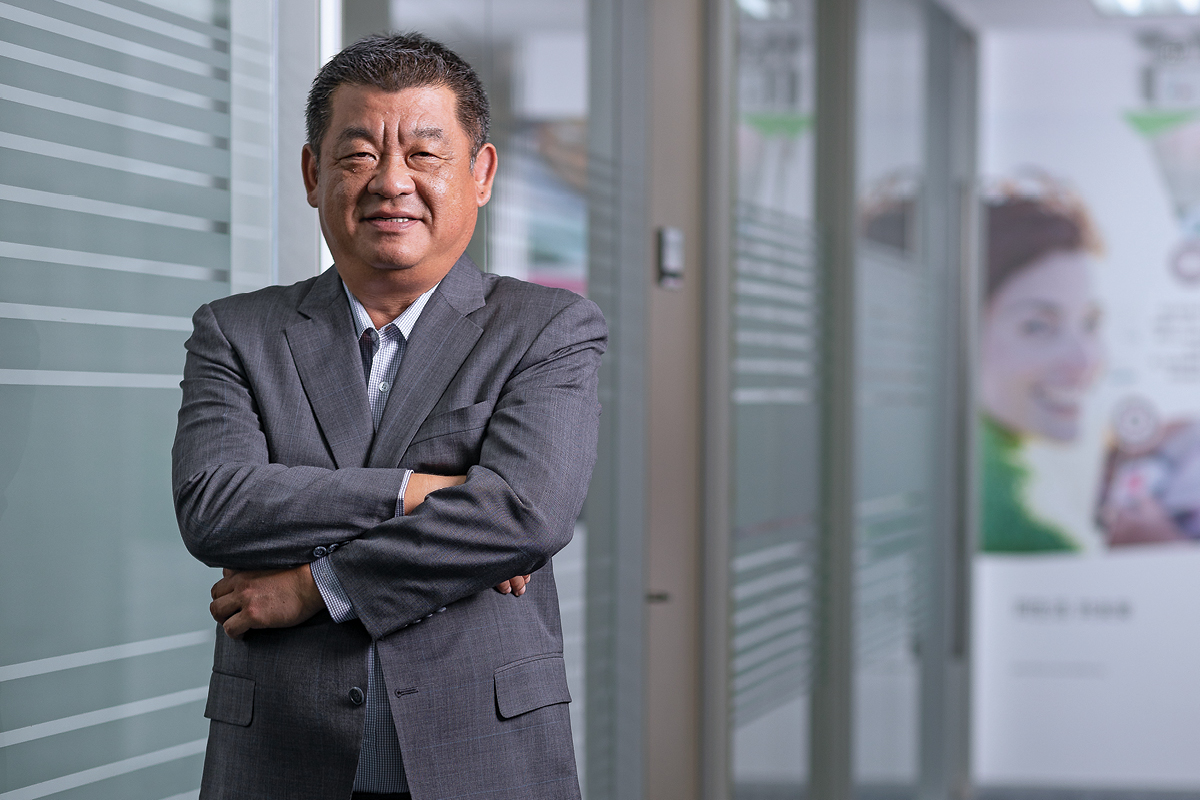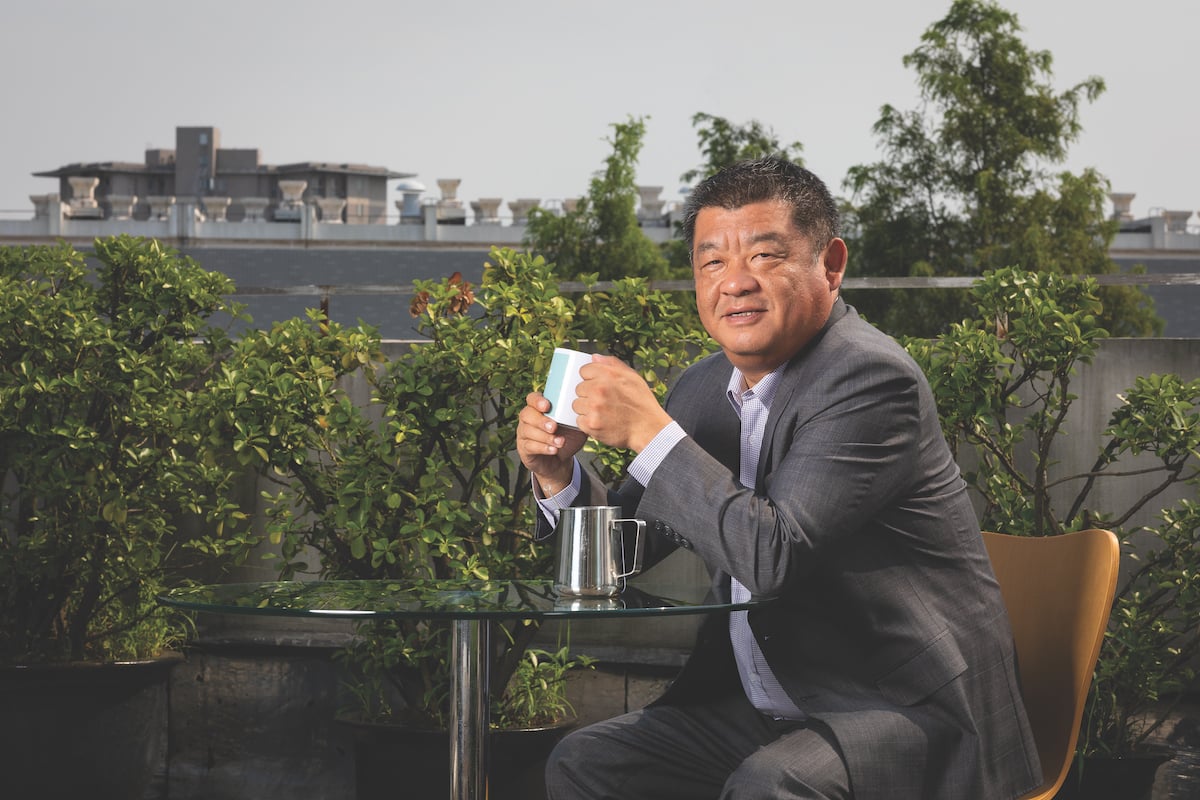Infineon Technologies has a simple mission: to make life easier, safer and greener. A world leader in semiconductor solutions and microelectronics, the business is committed to linking the digital and the real world with semiconductors that enable smart mobility, efficient energy management and the secure capture and transfer of data. With almost 37,500 employees across 90 countries worldwide, the company reported sales of around US$8.1 billion in 2017, driven by its four core business divisions – automotive, industrial power control, power management and multimarket, and digital security solutions.
Home to three of Infineon’s manufacturing facilities and three research and development centres, Greater China is one of the organisation’s most strategically important regions. “We have more than 4,000 granted and pending patents in Greater China alone and we’ve established 22 joint labs with local partners,” explains Dr Hua Su, President of Infineon’s Greater China segment. With more than 20 years of experience in the semiconductor industry across the US, Chinese mainland and Taiwan, Hua came to Infineon in 2015 when he was offered the opportunity to demonstrate his leadership and expertise, and expand the business across Greater China.

Today, China accounts for 25% of Infineon’s revenue for FY2017 according to its financial report. “Infineon is a technology leader with an unwavering commitment to customer success. But it’s also a business in growth mode, so our efforts in Greater China are of strategic importance to the success of Infineon globally,” Hua notes.
“Already we have increased investments to enhance our manufacturing capacity and support growing demand in this region. We recently established a joint venture with SAIC Motor, one of China’s largest car manufacturers, to manufacture power modules for the dynamically developing electric vehicle market in China.
“We’ve also formed close partnerships with leading enterprises and universities for the long-term promotion of application-based research and training, including Tsinghua University, and Baidu’s Apollo program, which actively strives for autonomous driving development.”
Compared with the global production averages of the semiconductor industry, Infineon Technologies is a leader in the efficient use of resources:
47% Less electricity consumed, 28% Less water consumed, 53% Less waste generated Through its sustainable products and solutions, the business reduced more than 56 million tonnes of CO2 emissions in the 2017 fiscal year.
According to Hua, the greatest challenge Infineon faces is the realisation that what has succeeded in the past will not guarantee success in the future.
“The search for innovation never stops. The market is increasingly competitive and our customers now demand system-oriented offerings tailored to their specific needs and matching the target application,” he explains. “But our greatest challenge is also our greatest opportunity. We have innovated our business model to differentiate ourselves through a product-to-system approach, which allows us to maximise customer value by gaining an understanding of their systems, markets and needs. We are the link between the digital and the real world and we remain committed to supporting our customers on their journey of digitalisation.”
Hua explains that the Internet of Things has emerged as a driving force in changing existing markets and business models, and driving global economic growth. “We’ve partnered with internet giants JD.com and Alibaba Cloud. As a technology leader, we help our customers stay ahead of digital transformation and become even more successful in the loT era. Our semiconductor solutions make the IoT smart, secure and power-efficient – fundamentally changing the way we live and creating smart vehicles, smart industries and cities, smart energy, and smart homes and consumer devices. We’ve also established a number of shared competency centres across Greater China, in the areas of human-machine interfaces, radio frequency sensors, new energy vehicles, and major home appliances.”

“As a technology leader, we help our customers stay ahead of digital transformation and become even more successful in the IoT era.”
Hua is committed to making Infineon a great place to work. “We want to make our people successful in what they do by creating an attractive work environment and an open feedback culture. We commit to the highest standards of quality, we build long-term reliable relationships with our customers and our supply chain to ensure mutually beneficial results, we drive innovation, and we’re dedicated to creating sustainable value for our customers, shareholders and employees,” he explains.
“Our ‘customer connected’ strategy ensures effective customer engagement along the entire journey, from the product supplier to the co-creator. Going forward, we will work closely together in important customer projects to quickly expand our technological competence.”
Infineon Technologies realises that in order to meet the planet’s future energy requirements, society must learn to produce, transmit and use energy more efficiently. While they may be barely visible, Hua explains how these electronic components have become an indispensable part of our daily lives. “Every day, our semiconductors have a far-reaching positive impact on the world,” he notes. Infineon semiconductors are used to effectively generate electricity from solar and wind sources and also enable energy to be transmitted with almost no losses – reducing energy consumption in cars, trains, industrial plants, consumer electronics and household appliances worldwide.
Sustainability is at the core of our thinking, and it has been integrated into every aspect of our business. Infineon is among the top 10% of the most sustainable companies in the world. We have been listed in the Dow Jones Sustainability Index every year since 2010,” Hua states proudly. “Our products play an essential role wherever electric energy is generated, transmitted and used efficiently.”


